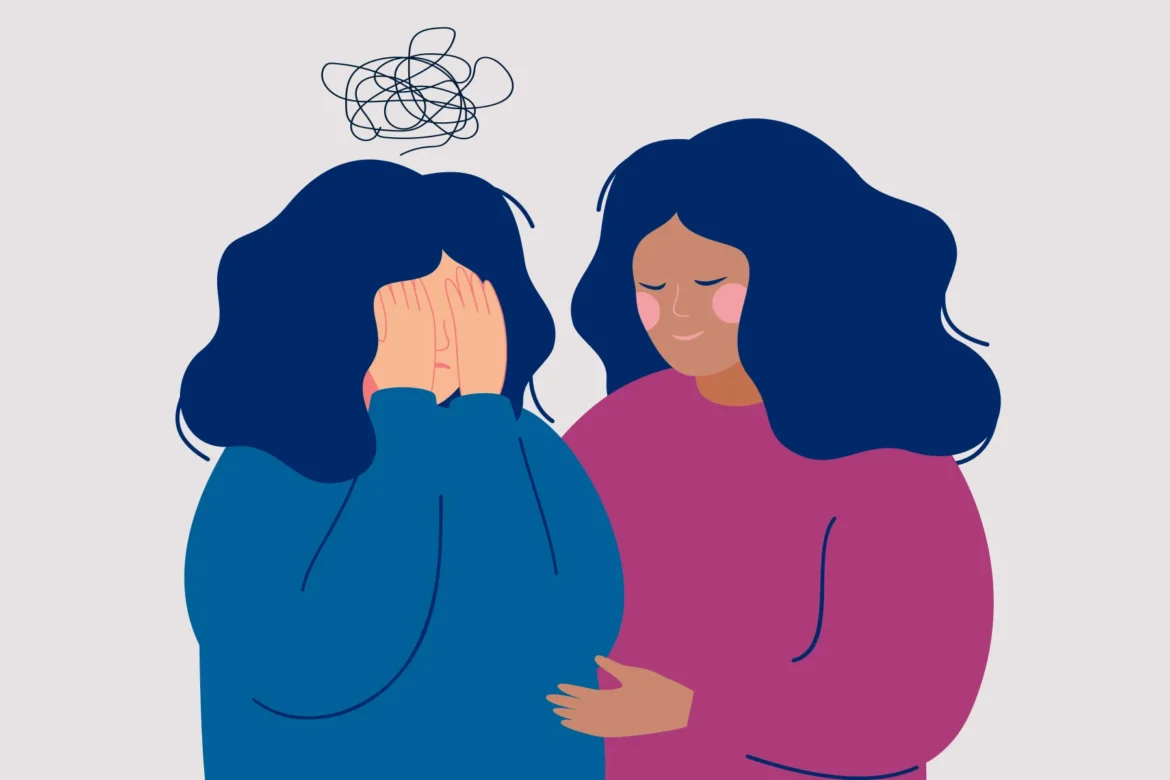Introduction
Mental health conditions affect millions of people worldwide. They can impact emotions, thoughts, and behaviors, making it difficult to function in daily life. Recognizing symptoms early, understanding how these disorders are diagnosed, and knowing treatment options are essential for recovery.
Depression
Symptoms
-
Persistent sadness or hopelessness
-
Loss of interest in activities
-
Fatigue and sleep changes
-
Difficulty concentrating
Diagnosis
-
Clinical interviews and symptom checklists
-
Sometimes lab tests to rule out physical causes
Treatment
-
Antidepressant medications
-
Cognitive-behavioral therapy (CBT)
-
Lifestyle changes like exercise and diet
Anxiety Disorders
Symptoms
-
Excessive worry and restlessness
-
Racing heart, sweating, trembling
-
Avoidance of certain places or situations
Diagnosis
-
Psychiatric evaluation and patient history
-
Screening tools like the GAD-7 questionnaire
Treatment
-
Anti-anxiety medications or antidepressants
-
Therapy such as CBT or exposure therapy
-
Relaxation techniques and mindfulness
Bipolar Disorder
Symptoms
-
Manic episodes: high energy, impulsive behavior
-
Depressive episodes: sadness, low motivation
-
Mood swings that disrupt daily life
Diagnosis
-
Detailed psychiatric interview
-
Observation of mood patterns over time
Treatment
-
Mood stabilizers and antipsychotic medications
-
Psychotherapy
-
Ongoing monitoring for relapse prevention
Schizophrenia
Symptoms
-
Hallucinations and delusions
-
Disorganized speech and thinking
-
Withdrawal from social activities
Diagnosis
-
Psychiatric assessment and ruling out medical causes
-
DSM-5 criteria for schizophrenia
Treatment
-
Antipsychotic medications
-
Supportive therapy and social skills training
-
Community and family support
Attention-Deficit/Hyperactivity Disorder (ADHD)
Symptoms
-
Difficulty focusing and staying organized
-
Hyperactivity and impulsivity
-
Academic or work challenges
Diagnosis
-
Psychological testing
-
Reports from parents, teachers, or employers
Treatment
-
Stimulant or non-stimulant medications
-
Behavioral therapy
-
Lifestyle adjustments like structured routines
Post-Traumatic Stress Disorder (PTSD)
Symptoms
-
Flashbacks and nightmares
-
Hypervigilance and irritability
-
Avoidance of reminders of trauma
Diagnosis
-
Trauma history assessment
-
Symptom checklists and clinical interviews
Treatment
-
Trauma-focused CBT or EMDR therapy
-
Medications such as SSRIs
-
Support groups and coping strategies
Eating Disorders (Anorexia, Bulimia, Binge-Eating Disorder)
Symptoms
-
Distorted body image
-
Extreme dieting or overeating
-
Health complications from poor nutrition
Diagnosis
-
Medical exams and psychological evaluation
-
Observation of eating behaviors
Treatment
-
Therapy (CBT, family-based therapy)
-
Nutritional counseling
-
Medical monitoring
Conclusion
Psychiatric disorders are common and treatable. With proper diagnosis and personalized care, individuals can manage symptoms and lead fulfilling lives. Early intervention and continuous support are the keys to recovery.
FAQs
Q1: Can psychiatric disorders be cured?
Many can’t be “cured” permanently, but symptoms can be managed effectively.
Q2: Are medications always necessary?
Not always. Some conditions respond well to therapy alone, while others may require medication.
Q3: How do I know if I should see a psychiatrist?
If your symptoms interfere with work, school, relationships, or daily life, seeking help is a good step.
Q4: Can one person have more than one disorder?
Yes, many people experience co-occurring conditions like anxiety and depression.
Q5: Is it possible to live a normal life with a psychiatric disorder?
Absolutely. With treatment and support, many people thrive.

